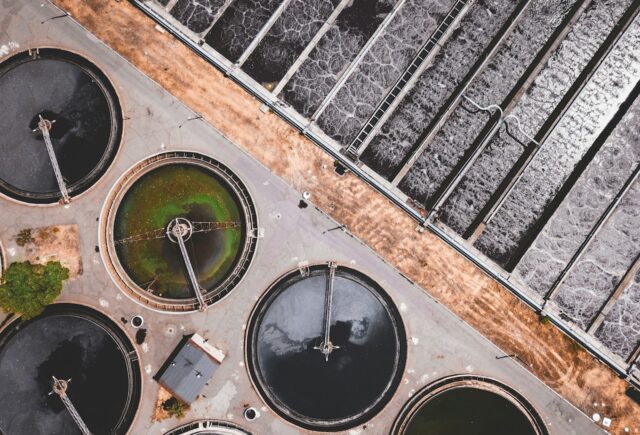Critics say a broad global equity portfolio cannot be considered impact investing if it includes mining and tobacco companies. Noel O’Halloran, chief investment officer at KBI Global Investors, disagrees.

CV
- Chief Investment Officer at KBI Global Investors since 2002.
- O’Halloran joined KBI in 1996 and rose through the ranks. He was Head of Equities from 1996 to 2000, then director and by 2002 CIO. He managed equity portfolios across Irish, European, Asian and US equity markets.
- Prior to joining KBI, he worked for Irish Life Investment Managers as a US Equity Asset Manager.
- O’Halloran is an engineer by training, having graduated with a 1st Class honours degree from University College Cork in Ireland.
Dublin-based KBI Global Investors (KBIGI) sees environmental, social and governance (ESG) criteria as a source of ‘alpha’, a measure of the returns an investment generates over and above those of its benchmark, usually a market index. It argues that its methodology has a positive impact.
Since its inception in 1980, Dublin-based KBI Global Investors (KBIGI) has grown into a global active equity investor with ESG criteria integrated into its stock picking.
“While broad global equity strategies may not naturally lend themselves as pure impact investments, a targeted focus in areas such as carbon intensity is impactful and increasingly important to clients,” Noel O’Halloran, the firm’s chief investment officer, told Impact Investor.
In its broad global equity portfolios, KBIGI invests in sectors such as tobacco or extractive industries. Critics argue investing in these industries can never have a positive impact.
For those sectors KBGI employs a ‘best in class’ approach to stock selection, considering ESG credentials, engagement and the direction of travel for the company, he explained.
Impact considerations surrounding a stock “can also lead to very focused engagement with companies,” said O’Halloran.

Relative outperformance
“As a global asset manager we provide broadly diversified global equity strategies where the mandate from clients is to invest across all industries, including tobacco and mining,” said O’Halloran.
“Therefore, in a relative sense, these strategies compare strongly versus the benchmark on issues such as ESG scores, carbon intensity and so forth. For those clients who have ‘values’ and do not want us to invest in these sectors, we also provide a separate range of global equity products that narrow the investment universe and exclude certain industries, for example, the lowest-rated ESG scoring companies,” he said.
Natural resource investments seen as impact
This is where KBIGI’s natural resource strategies come in. They are focusing on solutions in areas of global challenges such as water, clean energy and agribusiness. O’Halloran said these have strong impact credentials and some clients invest in them as impact strategies.
“The natural resource strategies by definition provide an alternative solution, albeit a much more focused one,” he said. “Our annual report mapping these strategies to the UN Sustainable Development Goals (SDGs) is a strong validation of this point. Impact strategies such as these provide the best of both worlds for investors, combining the alpha and non-financial impact elements in one.”
According to KBIGI’s proprietary Revenue Alignment SDG Score (RASS) its natural resources strategies at the end of December 2020 showed a score of 73.3%. This means that 73.3% of revenues were contributing positively towards the SDGs. Negative contributions stood at 4.9% and neutral at 16.9%.
And the investments also perform well when it comes to their financial return. The KBIGI global resource solutions strategy, which launched in 2015 and now has almost €350mn in assets, returned 16.2% annualised over five years to the end of June 2021, compared to the benchmark at 9.3%.
O’Halloran is not concerned about the lack of opportunities in natural resources investments. He said the most dramatic growth in recent years has been in the clean energy sector, particularly in the renewables and energy efficiency markets. He believes issues such as biodiversity and the circular economy will offer great opportunities in the next three to five years.
Strong momentum for UN climate conference
Ahead of the UN Climate Change Conference (COP26) in Glasgow, Scotland, this autumn, KBIGI will particularly focus on discussions around the Net Zero Asset Managers and Asset Owners Initiative of which it’s a member and the activities of the UN Principles for Responsible Investment (PRI) of which it’s a signatory.
It will also keep a close eye on government and policymaker statements and commitments. “The role of regulation and the actions of regulators have always been central to what we do. The great news is that over recent years the regulators’ activities are only accelerating, creating strong tailwinds for the companies we invest in that provide such solutions in so many instances,” said O’Halloran.
“We would expect that COP26 will, as with its predecessors, look to once again accelerate the actions that need to be taken by all of society. It’s a continuum and COP26, in reality, has an opportunity to be even more meaningful than its predecessors,” he said.
“Society is so much more aware and alive to the challenges and the need for action and solutions. Less denial and more listening, and readiness to act, should be a great backstop for COP26.”






